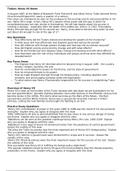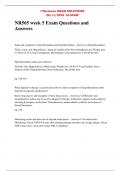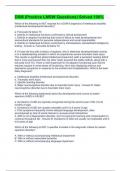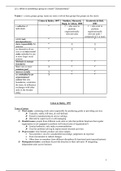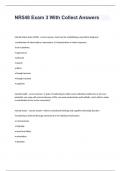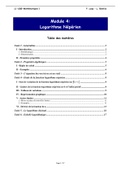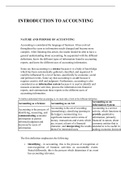In August 1485, at the Battle of Bosworth Field, Richard III was killed. Henry Tudor became Henry
VII and ruled England for nearly a quarter of a century.
This reign can mistakenly be seen as the prologue to the exciting events and personalities in his
son, Henry VIII’s reign. In fact, Henry VII’s seizure of the crown and the way in which he
consolidated power are epic stories in themselves. He still had doubts about his success in
creating a dynasty – especially after the death of his eldest son, Arthur, in 1502. Fortunately,
Henry VII lived long enough for his second son, Henry, to be able to become king when he was
just about old enough to rule at the age of 17.
Key Questions
o How effectively did the Tudors restore and develop the powers of the monarchy?
o In what ways and how effectively was England governed during this period?
o How did relations with foreign powers change and how was the succession secured?
o How did English society and economy change and with what effects?
o How far did intellectual and religious ideas change and develop and with what effects?
o How important was the role of key individuals and groups and how were they affected by
developments?
Key Focus Areas
o The England that Henry VII inherited when he became king in August 1485 – the country,
society, religion, learning, the arts.
o How he consolidated his power on the throne, and his style of government.
o How he removed threats to his power.
o How he made England stronger through his foreign policy, including relations with
Scotland, and encouraging overseas trade and exploration.
o To what extent was Henry VII personally responsible for his success in establishing Tudor
rule?
Overview of Henry VII
Henry VII is seen as the founder of the Tudor dynasty who laid down secure foundations for his
son and grandchildren. Sporadic fighting between rival noble factions in the fifteenth century had
become worse in the 1450s. This led to what we know as the Wars of the Roses – the Red
Lancastrians and the White Yorkists. Henry was a Lancastrian king who married a Yorkist
princess, uniting the rival families and brought the fighting to an end.
Practice Essay Questions
‘Henry VII’s consolidation of power in the years 1485 to 1499 was the result of his own personal
strengths’. Explain why you agree or disagree with this view.
‘After 1485 Henry VII was so well established that he was never in any serious danger of losing
the throne.’ Explain why you agree or disagree with this view.
‘Rebellions can be seen as the greatest challenge facing Henry VII’s rule, 1485-1509’. Explain
why you agree or disagree with this view.
‘Rebellions in the reign of Henry VII stemmed mainly from the weakness of central government.’
Assess the validity of this view.
‘Securing the Tudor succession was the most important aim of Henry VII’s foreign policy.’ Explain
why you agree or disagree with this view.
‘Henry VII’s reforms in government were limited both in scope and in success.’ Assess the
validity of this view.
‘Henry VII’s financial policies were the most important reason for the success of his rule.’ Assess
the validity of this view.
How successful was Henry VII in fulfilling his foreign policy objectives?
‘The popular rebellions faced by Henry VII gave him more problems than the threats posed by
pretenders to the throne.’ Explain why you agree or disagree with this view.
,‘Henry VII does not deserve to be considered a great king. Above all, he was lucky.’ To what
extent do you agree with this?
‘The main reason that Henry VII succeeded in establishing the dynasty was due to the strength
of his royal connections.’ Explain why you agree or disagree with this view.
‘Henry VII’s success in government was due to the elite group of councilors who advised him in
the king’s council.’ Explain why you agree or disagree with this view.
‘The cloth trade was the most important contributor to the English economy during the reign of
Henry VII.’ Explain why you agree or disagree with this view.
How significant was the position of agriculture in the English economy in the years 1485 to
1509?
To what extent is it accurate to say that there were increased opportunities for social mobility
during Henry VII’s reign?
‘The Church in England in the reign of Henry VII was riddles with abuses.’ Explain why you agree
or disagree with this view.
To what extent, by 1509, was the Church in England in need of reform?
The consolidation of power
o Henry VII’s seizure of the throne and consolidation of power
o Henry’s character and aims in government
o The establishment of the Tudor dynasty
o Henry’s treatment of claimants and pretenders to the throne
Claim to the throne
Henry Tudor, Earl of Richmond, became King Henry VII of England following his victory over
Richard III’s forces at the Battle of Bosworth on 22 nd August 1485. This victory terminated
Plantagenet rule in England, and saw the establishment of a new dynasty, the Tudors. However,
Henrys grasp of power was insecure; he had virtually no discernable claims to the throne and he
had many enemies. It was therefore essential for him to consolidate his power by establishing his
dynasty and ensuring that any rivals to the throne were dealt with firmly.
o Henrys claim to the throne rested on his victory in battle. That he had defeated and killed
King Richard III was regarded as a sign that God had approved of Henrys assumption of
power.
o His claim lay through his mother, Margaret Beaufort. The line came from John of Gaunt’s
third wife: their son John Beaufort had been born before their marriage and was therefore
seen as illegitimate.
o Henry became the Lancastrian claimant only because there was no one else who could
fulfil the role.
Henrys Background
Henry VII hadn’t been bought up to rule. In 1471, when he was 14, he fled to France where he
lived for most of the time as a fugitive in the Duchy of Brittany. His upbringing was very different
to a fifteenth century nobleman. When he was in the Duchy of Brittany, he spent much of his
time hanging around the Dukes court, as one of a crowd of courtiers. This could have been the
most useful training for a king, not in any bookish way or in experience of administration or
decision making, but in just being able to observe court politics as a little-regarded outsider. He
must have learnt a lot about courts, and been able to draw conclusions about how rulers should
never let themselves go, should maintain their dignity at all times, should always retain control
and never become indebted to a party or group. Behind-the-scenes experience, followed then by
his own wheeling and dealing at the French court, must have taught Henry a vast amount of how
politics really worked. This meant that as a king he was careful, always wanting to double check
every bit of information, always determined to keep up a front, to prevent the mask slipping and
never behaving like one of the lads like Edward IV or Henry VIII did.
,Character
o He wasn’t a man for instant and impetuous decisions, later regretted, like his son.
o Henry was totally faithful to his wife, while never giving her political influence, or trusting
her relatives.
o His character was molded by his upbringing.
o He was astute and clear thinking, but not sentimental.
o Respected, but not popular.
o Distinguished, wise and prudent.
o His spirit was so brave and resolute, that never, even in moments of great danger, did it
desert him.
o In government, he was shrewd and far-seeing, so that no one could get the better of him
by deceit or sharp practice.
o He knew how to maintain royal dignity and everything belonging to it.
o Successful in war, but in nature preferred peace to war.
The reality of Henry’s reign was less glamorous. He came to the throne, by killing his rival and
snatching the crown, and he went on to rule efficiently, but with a constant fear that the same
thing might one day happen to him.
What problems did Henry face?
o Rivals and rebels
o Financial pressures and the need to build up royal income and encourage trade
o Foreign threats at a time when wars were commonplace in Europe
o The need to ensure that there was a peaceful succession after his death
Aims
Henrys own claim to the throne was weak. Although he had won the crown by right of conquest
this wasn’t sufficient to guarantee him loyalty across the kingdom unless he could enforce it
further. From 1485, Henrys main purpose was to ensure that he kept his throne, therefore his
primary aim at the start of his reign was to consolidate his power, which he did by a number of
political actions combined with military success.
His aim was to remain king and establish his dynasty by handing on an unchallenged succession
to his descendants. His policies at home and abroad were shaped and dictated by this aim.
Therefore, his goals were simple: to secure and strengthen his dynasty. He knew that if he was
to prove himself a strong king and retain full control he would have to establish effective
government, maintain law and order, control the nobility and secure the crowns finances. He
would also need good advice, friends abroad and a considerable amount of luck.
o To establish and secure his right to the throne
o To strengthen royal government by better control of the nobility
o To strengthen the monarchy and the kingdom for the future by ensuring a strong financial
foundation.
Potential threats to Henry
o Although Richard and his nephews in the Tower were dead, the House of York lived on
through the de la Pole brothers. Edward IV’s sister, Elizabeth, had married John de la Pole,
Duke of Suffolk. Their two sons, John (Earl of Lincoln) and Edmund (Earl of Suffolk) had a
claim to the throne at least as valid as Henrys own.
o Margaret of Burgundy. She was Edward IV’s mother, and had married the Duke of
Burgundy, who was a powerful dukedom in what is now part of the Netherlands and
France, and an important trading partner with England. Margaret, with the help of her
husband, the Duke, quickly showed support for the Yorkists against Henry at various times
during his reign.
Advantages which Henry had
, Despite these threats that he faced, he did possess some advantages.
o Although the disputes between the Lancastrians and Yorkists had encouraged lawlessness
and crime, their wars also meant that members of the greater nobility were engaged in
mutual destruction. The death of many noble heirs had allowed their lands to be returned
to the Crown, while the misfortune of being on the losing side had allowed others to be
punished and disinherited as traitors. Those beneath the warring great houses – the
gentry, merchants and landowning farmers – were tired of the disruption that a generation
of sudden changes in political power had brought and were ready to support the recovery
of royal power as the best means of restoring order and prosperity.
o He also had some personal advantages. He was an adult and had recently proven himself
both as a leader and as a successful solider. These were admirable qualities and were
likely to lessen opposition to his claim to the crown.
o He was an only child, with no fear of the family rivalry that had shaped events when
Edward IV had died.
o His obscure welsh origins and years of exile in France also helped because they meant
that he had few personal enemies in high places.
While none of these factors was sufficient on its own to guarantee success, they provided Henry
with the opportunity to build on the power that he had won, if he had the political skill to take it.
Henrys consolidation of power
After the Battle of Bosworth Field, Henry moved quickly to legitimize his claim to the throne and
consolidate his power.
o Henry dated the beginning of his reign from 21 August 1485, the day before the Battle of
Bosworth. Therefore, Richard and his supporters could be declared traitors, which meant
that their estates became the property of the Crown by Act of Attainder.
o He arranged his coronation to take place on 30 October before the meeting of his first
Parliament on 7 November, thereby demonstrating that his right to the throne was based
on hereditary right and not only because Parliament had sanctioned it.
o The coronation of a monarch was more than simply a public ceremony to confirm his or
her power; it signified the approval of the Church and, through this, of God himself. In
feudal law the coronation required the nobility to swear an oath of loyalty to the king,
which could not be broken, and since Anglo-Saxon times the ceremony had conferred a
divine status that defined rebellion as a sin against God as well as a crime against the
state. The speed of Henry’s coronation was therefore a safety measure as well as a
symbol that he claimed the crown as a legitimate heir, not just through battle.
o He arranged for supporters to detain Elizabeth of York, daughter of Edward IV, and the Earl
of Warwick, Edward IV’s nephew, each of whom could be seen as having a much greater
claim to the throne than Henry himself.
o Having detained her the previous year, in January 1486 Henry married Elizabeth of York.
This united the Houses of Lancaster and York and dissuaded many Yorkists from
challenging Henry. The emblem of the Tudor rose combined the red rose of Lancaster and
the white rose of York.
o Henry was careful to have already crowned himself king before he married Elizabeth of
York, to show that he claimed the throne in his own right and not through Elizabeth. This
was so that no one could say that he gained the throne through his wife. Henry delayed
the coronation of Elizabeth until 1487.
o Elizabeth soon gave birth to a son, Prince Arthur, in September 1486. This helped to
establish a future for the new Tudor dynasty, creating a greater sense of permanence
about the change that had taken place in 1485.
o Henry summoned parliament in November 1485. As only the monarch could call
parliament, this was a demonstration of Henrys kingship. He also needed their recognition
of his position. Parliament duly obliged by recognizing Henrys title to the throne.

